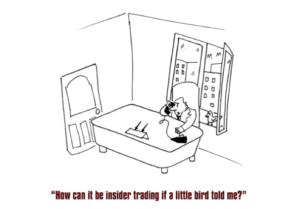![]()

Hugh Dive has long-held a desire to run his own business and has recently taken the plunge to set up his own boutique investment firm. He tells Industry Moves about the two funds that are set to launch in 2017, shares what his wife feels is his greatest career achievement to date, and tells us about two industry veterans who have inspired him along the way.
- What lead you towards starting up your own business, Atlas Funds Management?
- I have been an equity analyst for close to twenty years and this role often involves sitting across the table from public company CEOs and CFOs, pulling apart financials and questioning them about decisions that they have made in running their business. Like many fund managers, I have always had a strong desire to run my own business, not only being in control of my own destiny, but also to be in control of how investors are treated. In my years in the funds management industry I have seen too much ordinary treatment of investors, which reflects poorly on the entire investment profession.
- Will others be joining you in your new venture?
- Yes, we will be adding team members in line with fund inflows.
- What are your main goals for the company over the next 12 months?
- The main goal over the next twelve months will be to place Atlas Funds Management on a firm footing and have two funds listed and performing well for investors.
- You have two new funds to be launched soon – are you able to tell us a little more about what you will be bringing to the market?
- Initially we will be launching the Atlas High Income Property Fund, in the first half of 2017. This will be a low volatility, quality-style income fund comprised of high quality listed property securities. Additionally, we seek to boost income by utilising an active strategy of selling call options over this portfolio of ASX-listed property securities. This effectively converts a portion of tomorrow’s uncertain gains into certain income today. This strategy is expected to allow us to pay distributions quarterly to investors and we will be seeking to deliver an annual yield of 8% paid quarterly in arrears. In the second half of the year we are targeting launching the Atlas High Income Equity Fund, a long/short fund designed to harvest additional franking credits for investors.
- You’ve had an interesting career, what do you feel has been your greatest achievement so far?
- My wife may say that it would be keeping a marriage going through an interesting career. In my career in funds management I have worked in both the Canadian and Australian markets and have helped manage funds at very large, medium size and small fund managers. Interspersed with this was a few years as a sell-side analyst covering basic materials at a large US investment bank, a memorable moment of which was when I was told that I was going to do a marketing trip to Europe for three days and two nights. I initially thought a trick was being played on me, sadly it was not.
- Who has had the biggest influence on your career so far?
- Two individuals have influenced my career, Phil Cotterill from CC&L in Canada and Anton Tagliaferro from Investors Mutual. They both have a passion for investing and in particular a fascination for pulling apart companies to understand what are the factors that will make some companies succeed and others fail. They have both instilled in me the need to view economic and political events in terms of their impact on your portfolio and attempt to identify long range factors that can impact a company’s business model.
- How do you maintain a work/life balance?
- I really enjoy cycling as being on the road early clears my head and puts me in a great frame of mind to tackle the daily gyrations of the ASX. I especially like riding with my cycling team WAM Velo, which is kindly supported by Geoff Wilson. I plan on beating Geoff in the upcoming Blayney to Bathurst race in April, after a cunning move in last year’s race resulted in the wily veteran finishing ahead of me.
See original post in Industry Moves https://industrymoves.com/q-and-a/q-a-with-hugh-dive-on-his-new-venture


 Insiders and insider trading
Insiders and insider trading